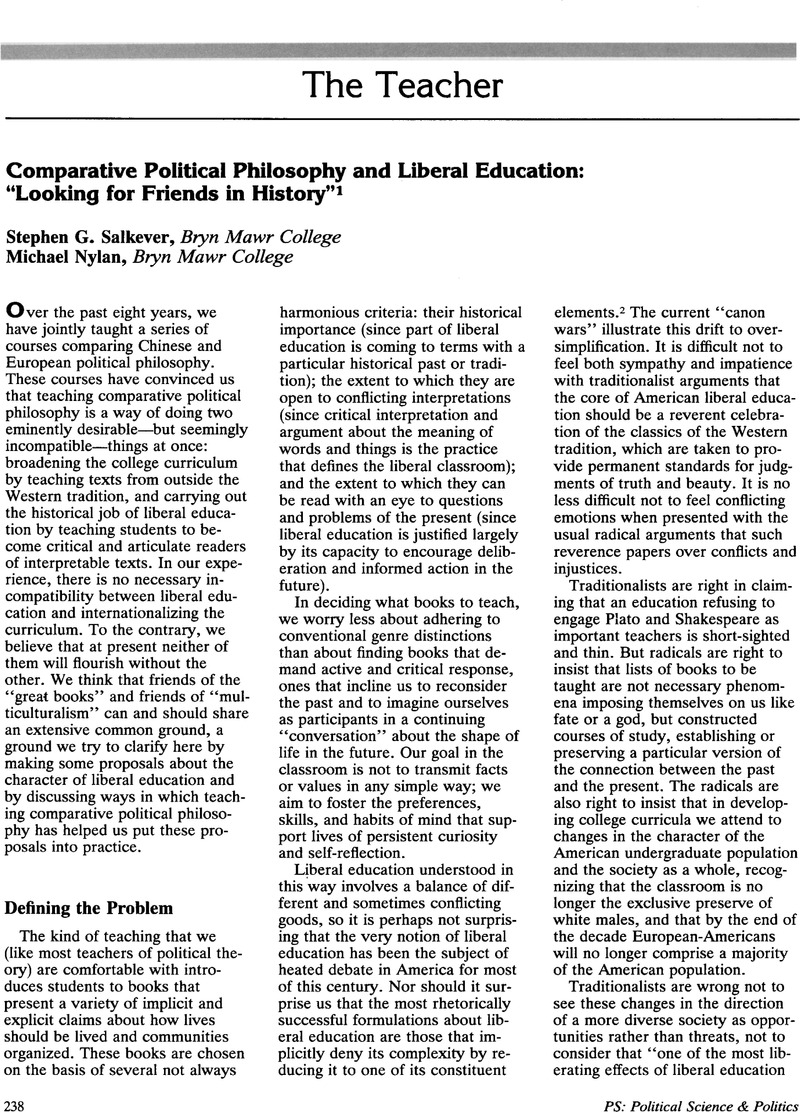Published online by Cambridge University Press: 02 September 2013

A longer version of this paper, entitled “Teaching Comparative Political Philosophy: Rationale, Problems, Strategies, or, On Trying To Avoid The Anthropologist/Economist/Missionary Trilemma,” was presented at the 1991 Annual Meeting of the American Political Science Association, and is available from the authors on request. The subtitle refers to our attempt to teach philosophical texts comparatively while avoiding three things: the contextualist reduction of philosophy to an aspect of the anthropologist's “culture”; the universalist reduction of philosophy to an effect of the economist's laws; and the moralistic reduction of philosophy to good and bad dogmas by sectarian missionaries both religious and secular.